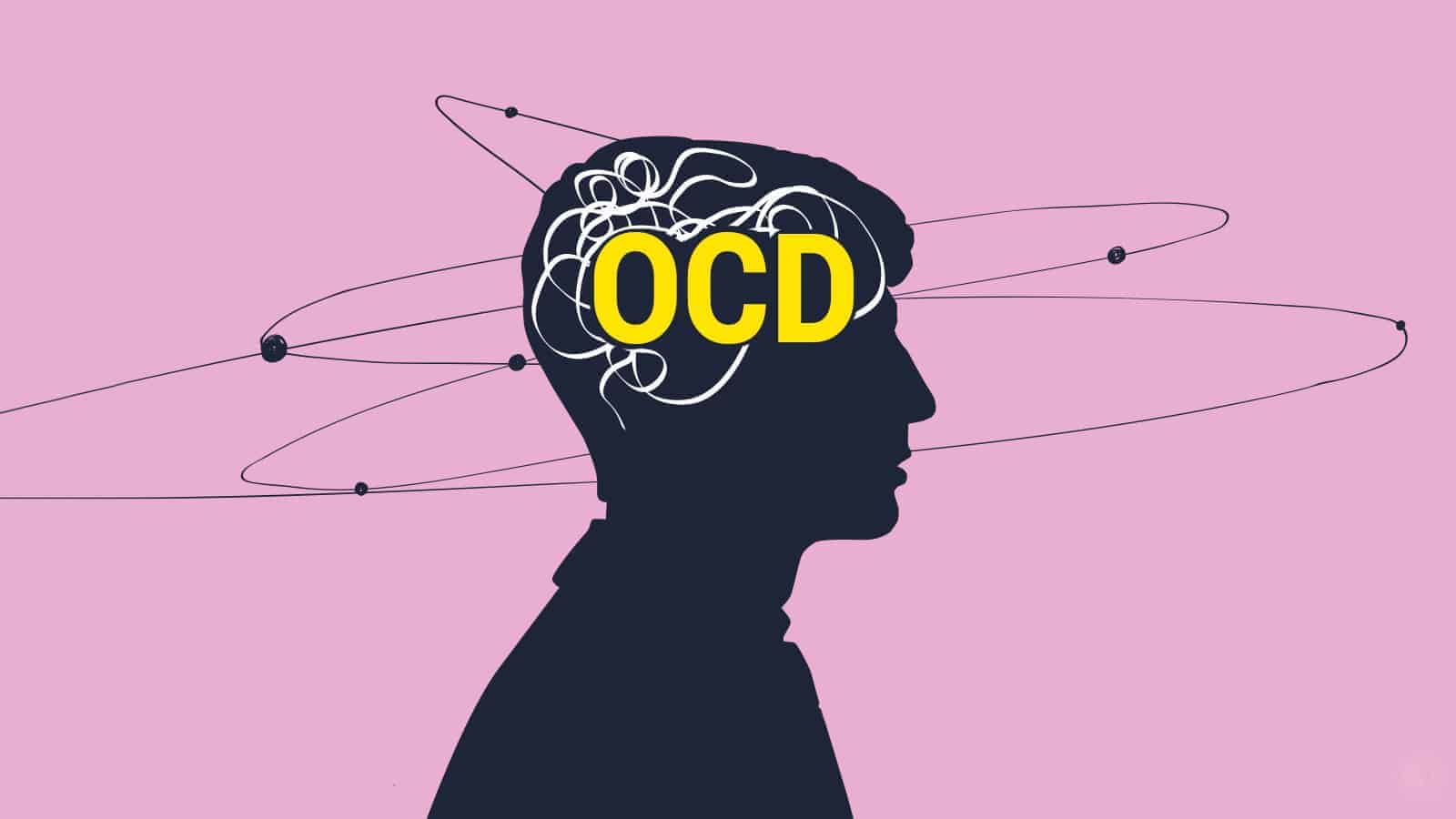Compulsive disorder, typically called obsessive-compulsive disorder or OCD for short, is a mental disorder that entails the necessity of repeated routines or thoughts. Repeated but uncontrollable actions are referred to as compulsions. Repeated and uncontrollable thoughts are referred to as obsessions.
Those who live with OCD often need to learn to manage it and overcome the symptoms and struggles it poses in everyday life. This is easier said than done, but there are some expert-approved methods that can help you.
Do note that we are not suggesting that these tips alone can “overcome” or “cure” a compulsive disorder, as that would be factually incorrect. However, alongside advice with a mental health professional, these tips may be able to help you manage certain aspects of the disorder effectively.
Here’s How Therapists Explain 5 Ways To Overcome Compulsive Disorder
1. Understand OCD And What It Entails – Especially The Negative
Management for any disorder involves understanding. You need to know what you’re up against – even the confusing things, or the painful things. Here are some things you should know about OCD, according to Fred Penzel, Ph.D., an experienced psychologist, and International OCD Foundation Scientific and Clinical Advisory Board Member:
· There Is No Cure
OCD is a chronic disorder. It can be managed, but there’s no way to make it go away forever. The good news is that OCD can be helped and aided to the point where it no longer severely affects your everyday life, even if it always lurks in the background.
· You Can’t Resist Obsessions
As we mentioned, compulsions are repetitive actions, while obsessions are repetitive thoughts. While it is possible to stop yourself from performing compulsions, there is no way to block out obsessive thoughts. The more you try to ignore them, the bigger those fears will grow.
· You Can’t Trust Your Intuition
Trying to trust your intuition when you have OCD will typically end with you being led in the wrong direction.
· You’ll Need Continual Management
In order to prevent severe relapses, OCD must be continually managed throughout your lifetime.
· Doubt And Guilt Are Central
OCD makes you doubt everything about yourself, from your identity to your sanity and from your opinions to your future. Guilt is also another common and excruciating part of the disorder, affecting your positive thinking. You may feel guilty about virtually anything and everything.
· Medication Is Not Enough
While medication can help reduce OCD symptoms, cognitive behavioral therapy is typically used as the most common and most effective form of OCD treatment.
· Treatment Goals Are To Help You Help Yourself
Ultimately, therapy involves training you to be your own therapist, so you can help yourself in the future.
Yes, these all make OCD sound terrifying – and that’s because, for many people who have it, it is. But when you’re armed with this knowledge in advance, you can prepare yourself to face and deal with them.
2. Build A Fear Ladder
A fear ladder is a list of baby steps along the way to a huge fear, with each step rated on a scale of 1 to 10 in terms of how much anxiety it causes. Jeanne Segal, Ph.D., Lawrence Robinson, and Melinda Smith, M.A, all recommend the building and use of a fear ladder.
It is important to note that while fear ladders can be used independently by neurotypical individuals, those with OCD should not use them on their own. Instead, they are meant to be built and used during exposure and response prevention, or ERP, which is a common form of therapy for those with OCD.
Building a fear ladder can help you to cut down your biggest fears into small, manageable sizes that are realistic for you to overcome. Here is an example of a fear ladder:
- BIG GOAL: To not be frightened near dogs
- Give a big dog off-leash pets. – 10
- Give a big dog on-leash pets. – 9
- Carry a puppy – 8
- Give a puppy on-leash pets – 7
- Stand next to a dog wearing a leash without touching them. – 6
- Standing 8 feet away from a dog wearing a leash. – 5
- Stand across the street from a dog wearing a leash. – 4
- Look at dogs play across the park. – 3
- Look at a dog through a window. – 2
- Watch videos of dogs. – 1
Here are some tips for building a good, effective fear ladder:
Start by thinking about your end goal and break it down from there, listing all possible lead-ups in terms of fear levels.
· Start Slow
Take as long as you need on your first step and don’t carry on until your confidence has improved and you feel more confident performing the next action
· Remain Calm
Anxiety often decreases the longer you are exposed to something. The next time the stress in your OCD is triggered, try to stick around long enough to expose yourself properly.
· Let Yourself Feel The Anxiety; It’s Okay To Feel Anxious
Process these thoughts while you fight the desire to perform compulsions. It can be uncomfortable at first, but it will help in the long run.
Practice again and again in order to progress and get better, but don’t force or rush it. Take as long as you need in your practice.
3. Do Your Therapy Homework
Almost all forms of therapy will give you homework, and if you really want to get better, you’ll have to do them. Penzel has some recommendations for doing your homework, which is as follows:
· Review Daily
Think you know everything there is to know about your assignment? Reread it anyway. You may have missed something, or you may be able to learn more.
· Start Whenever
Waiting for the “right time” to do your homework isn’t going to work. Do you know what moment is perfect to start? Right now!
· Pay It Full Attention
When you do your therapy homework, it deserves your undivided attention. Itching for a break? Keep going for a total of 45 minutes, then allow yourself a short 10-minute breather.
· If You Don’t Feel Anxious, Tell Someone
Your therapy homework is supposed to challenge you and make you feel a little bit anxious with every step. If it’s not doing that, it’s not going to be effective. Talk to your therapist about what’s happening.
· Don’t Be a Perfectionist
One prevalent trait that those with OCD have is perfectionism. But perfection isn’t real, and the voice tells you that you need to do your homework correctly, or else it won’t work is just OCD being cruel to you.
· Don’t Rush Through It
Give yourself time to do a little bit of your therapy homework every day. Rushing through it will be bad for your mental health, as you’ll be exposing yourself to things that will make you anxious at a rapid rate. You also won’t have enough time to really internalize what you’re learning.
· Read Over Them
At the beginning of each day, read your assignments over so you have an idea of what you must do, and you don’t forget anything.
· Find The Positive Sides Of Challenges
Some jobs will be challenging. Look for the silver linings in them, like how much you’ll learn and grow from them.
· Speak Up If You’re Uncomfortable
If you feel like you aren’t ready to do a specific assignment, let your therapist know. Homework shouldn’t overwhelm you into a relapse. It should challenge you.
4. Recognize That Your Thoughts Are Not Gospel
Clinical psychology expert Margarita Tartakovsky, M. S., encourages patients with OCD to remember that their obsessions are not gospel. They are commonly referred to as intrusive thoughts, and they are not a reflection of yourself or your personality. Violent and dangerous views do not represent you who are, and they don’t make you a less positive person.
Dr. Steven Phillipson, a clinical psychologist who studies the Amygdala and intrusive thoughts, states that these types of ideas are not formed in the areas of the brain used for autonomous decision-making, character development, or intentional action.
This explains why your intrusive thoughts can be so violently different from what you know about yourself. It feeds into your doubt, but they are just brain signals arising from the disorder. That doesn’t mean you’re going to follow through on them.
5. Make Lifestyle Changes
Segal, Robinson, and Smith highlight the importance of managing a lifestyle when you have OCD. Though lifestyle changes alone are not sufficient in helping OCD, they can help to reduce the severity of anxiety and even reduce obsessions and compulsions. Here are some examples of lifestyle changes that you can make:
· Avoid Nicotine and Alcohol
Both of these vices, apart from being addictive, only provide calm at first. It won’t be long before the alcohol wears off and gives you more anxiety, or the nicotine acts as a stimulant to exacerbate your OCD symptoms.
· Exercise
Exercise is a great way to reduce mental disorders and illness symptoms. Additionally, it has such a positive effect on the anxiety that it can be considered a form of treatment. Just 30 minutes of physical activity daily can give you that little boost you need.
· Learn To Manage Stress
Stress can trigger symptoms that worsen your anxiety and compulsive disorder. There are plenty of ways to reduce stress. You can exercise, listen to music, light a scented candle, dance, drink some soothing tea, or cuddle with a pet. You can also practice meditation or use other stress-management and prevention methods.
· Sleep Enough
Anxiety can cause insomnia, and a lack of sleep can cause stress – it’s a vicious cycle. Work on making sure you get a minimum of 8 hours of sleep per day. Well-rested individuals have better emotional balance, allowing them to cope in a good way with OCD and other disorders with better positive thinking.
 Final Thoughts on Managing Compulsive Disorder
Final Thoughts on Managing Compulsive Disorder
A compulsive disorder is not a condition you can treat on your own. You will require the assistance of trained mental health professionals to ensure that you learn to manage and overcome a lot of your symptoms.
With that being said, you should also do your own part to help yourself heal. Taking steps forward to overcome compulsive disorder can be frightening, and the process of recovery will be non-linear and full of setbacks, but you’re more capable than you think you are, and you can get through it!
















